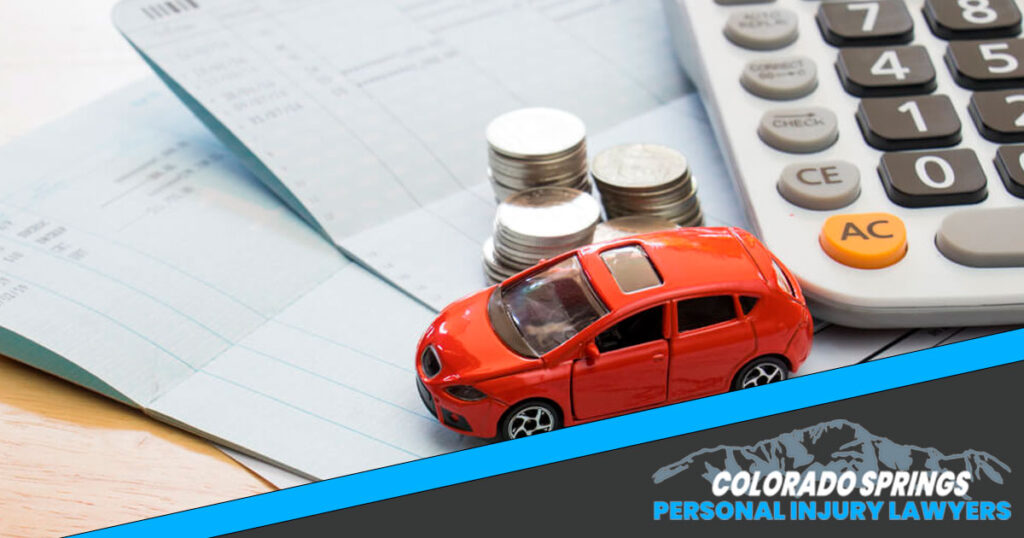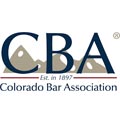If you’re a driver in Colorado Springs, it’s essential to understand that your car insurance rates may not stay the same after a car accident. Insurance companies often adjust premiums based on various factors, including:
- The details surrounding the accident
- Whose fault it was
- The total cost of claims resulting from the incident
These rate adjustments are commonly referred to as rate hikes, and they can significantly affect your budget.
Every insurer has its own method for calculating premiums, but a common thread is their reliance on risk assessment. A driver with a history of accidents presents a higher risk and, as such, might face steeper insurance costs.
For those living and driving in Colorado Springs, it’s particularly important to grasp how these calculations are made as car insurance rates are already some of the highest nationwide. By understanding the ins and outs of car insurance workings in this area, you can better prepare for any financial impacts that could arise following an accident.
Knowing what influences your insurance rates is the first step in managing them effectively. It’s also helpful in realizing when it might be beneficial to seek professional advice or even legal help to navigate through the process of dealing with insurance after an accident.
Understanding Car Insurance Rate Determinants in Colorado Springs
When insurance companies set insurance premiums, they look at a variety of factors to determine how much you’ll pay for coverage. After a car accident, these are some of the key elements that might affect your rates:
1. Driving Record and History
If you’ve been in multiple accidents, or have traffic violations, insurers may consider you a high-risk driver.
2. Severity and Cost of the Accident
Minor fender-benders might not impact your rates much, but significant collisions with large claims can lead to higher premiums.
3. At-Fault Accidents
Colorado operates under a comparative negligence system. This means if you’re found responsible for an accident, partially or fully, your insurance rates could increase.
The concept of fault is integral to car insurance rates. If another party is deemed at fault, their insurance should cover the damages. However, if you’re found liable, not only could your insurance rates go up, but you could also face out-of-pocket expenses for deductibles and coverages beyond your policy’s limits.
Insurance companies assess risk based on these factors and more. They’re trying to predict future claims, and being involved in an accident can signal to them that you’re more likely to file another claim in the future. Keep this in mind as it’s essential information for understanding potential rate hikes after an accident.
The Impact of Colorado Insurance Laws on Post-Accident Rate Changes
In Colorado, auto insurance regulations play a significant role in how rates change after an accident. These laws revolve around the concept of accident fault and insurance coverage levels.
Colorado operates under a fault-based system when it comes to auto accidents. This means the driver who is found at fault for causing the accident is also responsible for any resulting damage or injuries. Their insurance company is typically expected to cover these costs, which can lead to an increase in premiums.
Coverage levels, as dictated by Colorado law, also contribute to rate changes. The state requires drivers to maintain minimum liability coverage of $25,000 per person for bodily injury, $50,000 per accident for bodily injury, and $15,000 for property damage. If an accident’s costs exceed these limits, it can result in an insurance rate increase.
However, certain exceptions exist where insurers cannot raise premiums post-accident:
- No-fault accidents: If you’re involved in an accident but not at fault, your rates should remain unaffected.
- First-time minor accidents: Some insurance companies might offer “accident forgiveness” policies that prevent premium increases after your first minor accident.
Legal and Financial Consequences of Car Accidents for Insurance Rates
When a car accident happens in Colorado Springs, it can have significant financial consequences for both the people involved in the crash and their insurance companies. One important factor in this financial situation is the damages award, which is money given to cover losses like medical bills, lost income, and physical or emotional pain. Here’s how damages awards and personal injury claims can impact insurance rates:
1. Damages Award
If you are determined to be at fault in a car accident, your insurance provider might have to pay a damages award to the other party involved. This payment can result in higher insurance premiums for you because it indicates to your insurer that you pose a greater financial risk.
2. Personal Injury Claim
When someone who got injured in the accident files a personal injury claim against you, it may prompt your insurance company to review your policy. In situations where the claim leads to a large compensation payout, your insurer could raise your premiums to compensate for the expense.
The connection between personal injury claims and insurance costs is complex. If claims are frequent or payouts are substantial, insurers often make changes to rates in order to manage their own level of risk. This adjustment means that drivers with accidents on their driving record might experience an increase in their insurance expenses. However, it’s important to note that every case is different, and factors such as your driving history and the specific details of the accident also play significant roles.
Understanding these dynamics is crucial for drivers who want to effectively handle their insurance costs after being involved in an accident.
Ten Way to Fight A Rate Hike After a Car Accident
If you are facing a car insurance rate hike after an accident in Colorado, there are several steps you can take to try to mitigate the increase:
1. Understand the Reason for the Rate Hike: Contact your insurance company to get clarity on why your rates are increasing. Knowing the specific factors that led to the hike can help you address or dispute them effectively.
2. Check for Errors: Review your policy details and claims history for any inaccuracies that may have contributed to the rate increase. If you find discrepancies, notify your insurance company and request corrections.
3. Consider Accident Forgiveness Programs: Some insurance companies offer accident forgiveness programs that may prevent your rates from going up after your first at-fault accident. Check if your insurer provides this option and whether you qualify for it.
4. Shop Around: Compare quotes from different insurance companies to see if you can find a better rate. Be sure to provide accurate information to get realistic estimates.
5. Review Your Coverage: Consider adjusting your coverage levels or deductibles to lower your premiums. However, make sure you have adequate protection for your needs.
6. Appeal the Rate Hike: If you believe the rate increase is unjustified, you can appeal to your insurance company. Provide any relevant information, such as repair documents or accident reports, to support your case.
7. Maintain a Good Driving Record: Focus on safe driving habits to avoid future accidents and violations that could further impact your rates.
8. Be Persistent: If you are not satisfied with the response from your insurance company, you can escalate your concerns to the Colorado Division of Insurance for further assistance.
9. Take a Defensive Driving Course: Completing a defensive driving course can demonstrate your commitment to safe driving and may qualify you for a premium discount with some auto insurance providers.
10. Seek Legal Representation: An attorney can negotiate with the insurance company to potentially reduce or eliminate a rate hike.
Seeking a Colorado Springs Car Accident Attorney to Manage Insurance Rate Increases
Navigating the complexities of insurance rate increases post-accident can feel like an uphill battle. Here’s where a Colorado Springs car accident attorney comes into play. This professional has the expertise to help alleviate your stress and guide you through the challenging process.
How Can a Colorado Springs Car Accident Attorney Help?
Insurance companies are in the business of minimizing payouts and maximizing profits. That’s why they might increase your premiums post-accident, even when it’s not your fault. A skilled attorney understands these tactics and can assist in several ways:
- Negotiation: A Colorado Springs car accident attorney can negotiate with the insurer on your behalf, using their knowledge of insurance laws and practices to argue for a fair premium rate.
- Legal Action: If negotiations fail or if the insurer acts in bad faith, a Colorado Springs car accident attorney can take legal action to protect your rights and interests.
The Power of Expertise
A Colorado Springs car accident attorney is well-versed in the intricacies of Colorado’s auto insurance laws. They know how insurers operate and what strategies they use to justify rate hikes. Their expertise allows them to challenge these unjustified increases effectively.
Armed with legal representation by an experienced Colorado Springs car accident attorney, you aren’t left at the mercy of your insurer’s whims. Instead, you have a champion who fights for you, helping ensure that you don’t pay more than necessary after an accident.
Preventing Future Rate Hikes: Defensive Driving and Consumer Awareness
Foreseeing potential insurance rate hikes and taking proactive steps can make a significant difference in your insurance premiums. One of the beneficial measures is enrolling in a defensive driving course.
These courses equip drivers with tactics to anticipate and effectively respond to road hazards, reducing the likelihood of accidents. They also serve as a testament to insurance companies about your commitment to safe driving practices, potentially leading to lower premiums.
Defensive Driving Course Benefits:
- Avoidance of potential hazards
- Reduction in accident occurrence
- Lower insurance premiums
Being an informed consumer is equally essential in managing car insurance rates. Knowledge about bad faith practices by insurers empowers you to challenge unjustified rate increases.
Bad faith refers to actions where insurers intentionally deny or devalue a valid claim without a reasonable basis. Recognizing these practices allows you to take appropriate action and maintain affordable insurance rates.
Examples of Bad Faith Practices:
- Denying claims without proper investigation
- Unreasonably delaying claim processing
- Offering settlements far below fair value
Take Advantage of a Free Consultation With Our Colorado Springs Car Accident Attorneys
Dealing with the aftermath of a car accident can be overwhelming, especially when faced with an insurance rate increase. Our experienced Colorado Springs car accident attorneys are here to help. We understand that every case is unique, which is why we offer a complimentary consultation to evaluate your situation and discuss potential strategies.
















